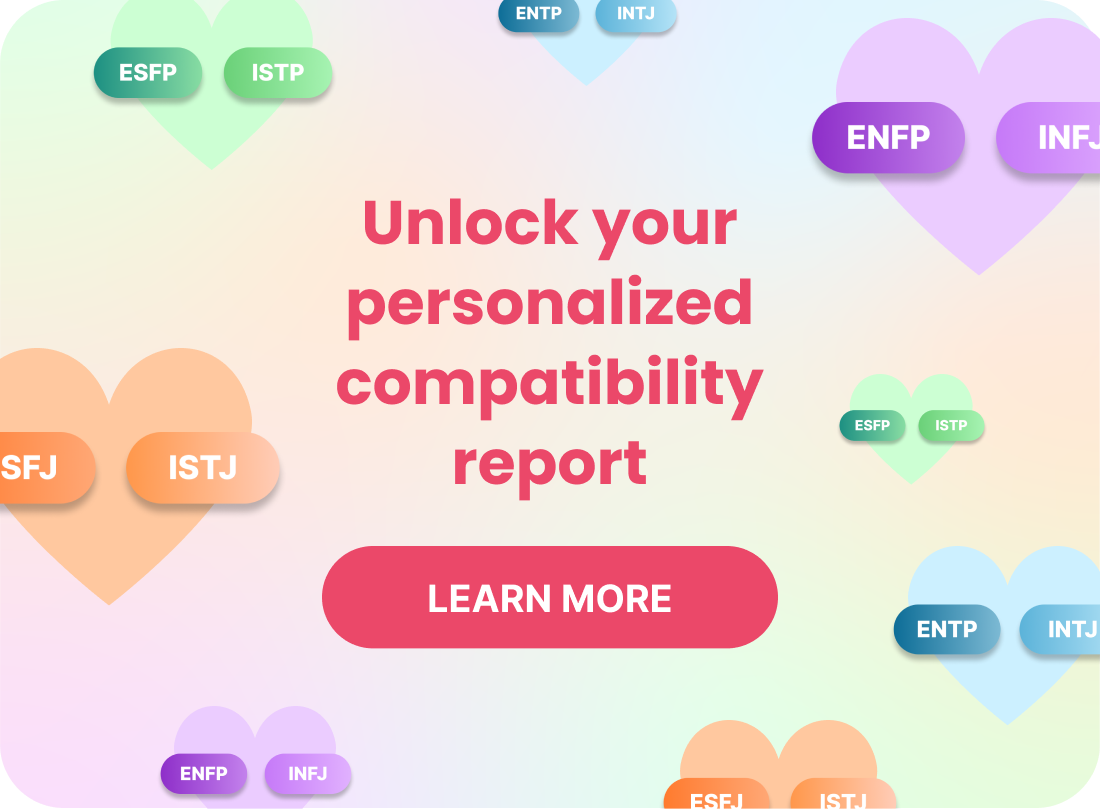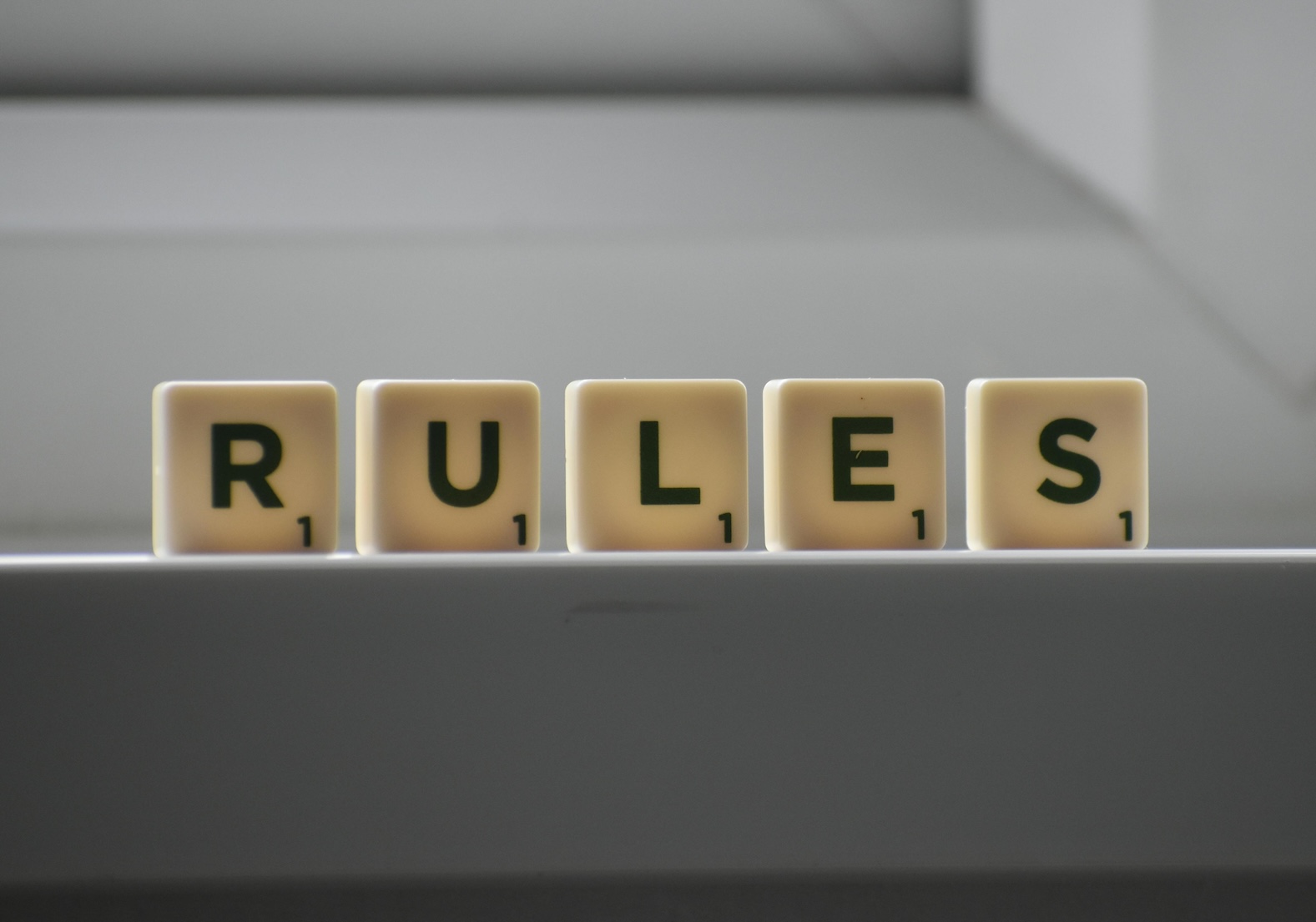The Ultimate Guide to Friendships
Friendships are one of the most important relationships we have in our lives. They offer companionship, emotional support, and advice that can help us navigate difficult times. From childhood playmates to late-night confidants, our friends are essential for guiding us through life’s twists and turns.

Friendships are one of the most important relationships we have in our lives. They offer companionship, emotional support, and advice that can help us navigate difficult times. From childhood playmates to late-night confidants, our friends are essential for guiding us through life’s twists and turns.
Friendships provide us with support, laughter, and a sense of community. Healthy friendships can also reduce stress and make life more enjoyable. We’re all naturally wired for human connection and companionship. Friendships are one of our key sources of both of these. Ultimately, friendships play a major role in our sense of well-being and happiness.
In this blog post, we explore the various benefits of having strong friendships, how to meet new friends, and how to build deeper friendships.
7 benefits of building and maintaining healthy friendships
There are many benefits to be gained from cultivating strong friendships. It’s worth noting that the quality of our friendships is more important than the number of friends we have. Here are the seven main benefits of having close friendships in your life.
1. Emotional support.
Good friends can help you feel more connected and supported. while Having someone who understands and relates to your emotions can provide emotional stability in times of need. They will understand and empathize with your struggles and provide a listening ear without judgment. Having supportive friendships in your life helps provide comfort and assurance during challenging times, allowing for smoother healing and growth along the way.
2. Personal growth.
Friendships can also challenge us to grow, build empathy, and see things from different perspectives. The more positive role models you have in your life, the more opportunities you’ll have to learn from a variety of people and develop your skills. Friendships can push us out of our comfort zone and help us become more open-minded, creative, and successful in other areas of life. Ultimately, having close friends to learn from helps us to show up as the best versions of ourselves.
3. Social interaction and belonging.
Having close friendships in your life can also reduce feelings of loneliness and isolation, providing a sense of community. Friendships give us companionship and opportunities to connect with others, helping us to feel like we have a sense of belonging. This is a fundamental human need. We have evolved to be highly social creatures who have an innate desire to be part of a group, at least to some extent. To live your happiest and healthiest life, it’s essential to invest in friendships that nurture your sense of belonging.
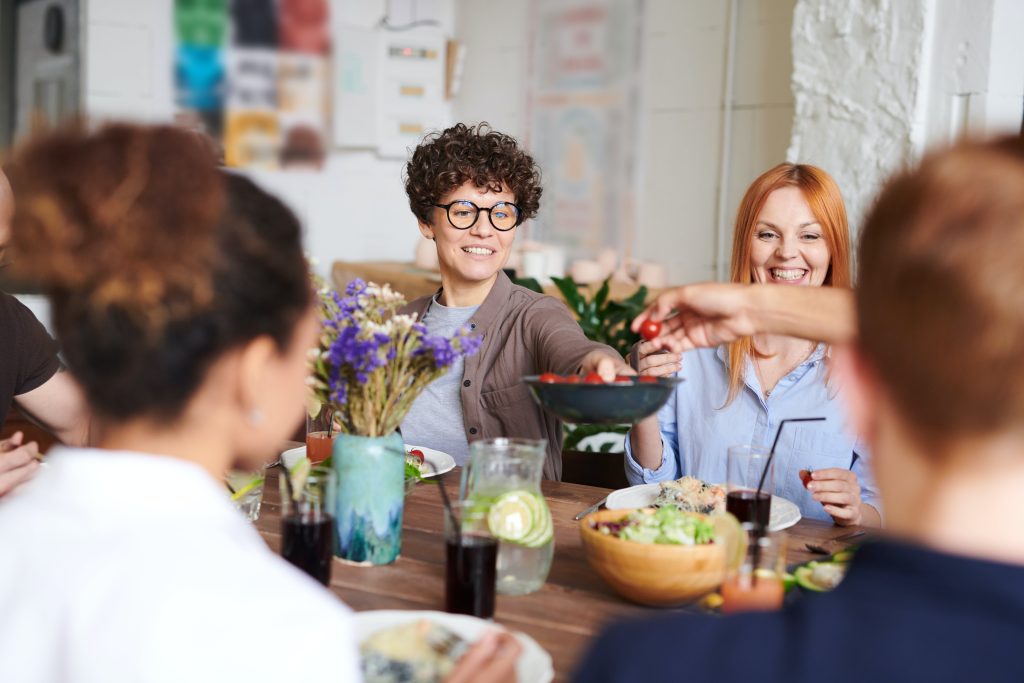
4. Fun and relaxation.
Another reason why building and maintaining friendships is essential to our well-being is that it can lead to more fun and relaxation. While not every friendship will be a source of entertainment and joy all the time, having friends to hang out with can reduce stress and help us get the most out of life. Whether it’s going on a crazy adventure or just relaxing and having a good laugh, friends can provide us with much-needed entertainment.
5. Stress relief.
Research has shown that friendships can even reduce stress. It’s no surprise that having someone to talk to and share our thoughts with can help us during times of need. Having meaningful conversations with friends can provide an emotional outlet and boost your mood. Knowing you have support from others can also help to minimize the effects of stress and make it easier to cope with difficult situations.
6. Helpful advice.
Friendships can be incredible when it comes to providing advice. Good friends know us better than anyone else and are often the first people we turn to when faced with a difficult decision. They can provide an objective view of a situation, offering insights into our own behavior and thought processes. When you are in the middle of a tricky situation, it can be hard to see things clearly, and having an external sounding board can be invaluable. In some cases, friends will have experienced similar situations in their lives and they can use those experiences as examples to help us choose the right path.
7. Improved physical health.
The body and the mind are interconnected, and good mental health can often lead to physical health benefits. Friendships can boost our self-esteem and reduce feelings of anxiety and depression, which in turn can help us become more physically active. When we feel supported and connected to others, we tend to take better care of ourselves and make healthier lifestyle choices. Having close friends can also give us a sense of purpose and satisfaction in life. In addition, quality friendships can help to reduce feelings of loneliness. All of these factors often lead to better sleep and improved immunity.
To sum up, friendships are essential for our physical and mental health. They provide us with meaningful connections and push us to be our best selves. So don’t forget to nurture your relationships and invest in quality friendships. They are worth it!
9 types of friendships
Different friends fulfill different needs. Here are the nine most common friend archetypes.
1. The Best Friend.
The Best Friend is the one who is there for you no matter what. You share a strong bond, an understanding of each other, and a deep level of trust. You often turn to each other for advice and support, and they are the first person you turn to in times of need.
2. The Casual Friend.
The Casual Friend is the one you hang out with occasionally, but they don’t have a huge presence in your life. You may talk to them regularly and make an effort to meet up when it’s convenient. But you don’t rely on them for emotional support or advice.
3. The Acquaintance.
The Acquaintance is someone you know but on a more superficial level. You may still talk to them on occasion and even hang out, but you don’t have a strong emotional bond with them. You’ll generally only see them at social gatherings hosted by mutual friends or work events.
4. The Hobby Friend.
The Hobby Friend is someone you share a common interest with, such as a hobby or activity. You’ll often meet them during activities or classes related to that interest and form a friendship based on mutual enjoyment of the same pastime. For example, you might go biking together or go to yoga classes.
5. The Work Friend.
The Work Friend is someone you meet through your job and become friends with. This type of friendship is often quite different from other types of friendships, as it’s usually built on professional respect and common business interests. However, if you spend time together outside of work and build an intimate bond, this type of friendship can be just as strong as others.
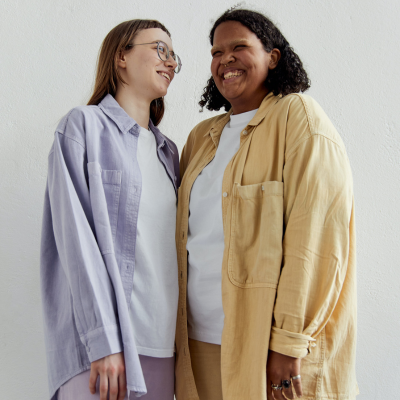
6. The Online Friend.
The Online Friend is someone you meet through social media or online communities. This type of friendship is becoming increasingly common as technology advances and people connect in more ways than ever before. You can develop deep, meaningful connections with people from all over the world, often without having ever met them in person.
7. The Childhood Friend.
The Childhood Friend is someone you have known since childhood. This type of friendship is unique because it often has a special place in our hearts – they were there for you during some of your earliest memories and often stay in your life for decades. These types of friendships can be incredibly fulfilling because they are formed on a foundation of shared history and unique understanding.
8. The Partner in Crime.
The Partner in Crime is someone you rely on to join you in all sorts of crazy adventures or activities. You can be yourself around them, and you know that they will always be down for whatever you have planned. They can make any situation more fun and often bring out the best in you. Partners in Crime are the ultimate ‘yes’ people. They might not be your first port of call when things go wrong, but you know they’ll always be there for the good times.
9. The Unexpected Friend.
The Unexpected Friend is someone who may not have been part of your life at first but slowly started to become a major part of it. It might be a classmate you never expected to become close with or someone you met who isn’t obviously your type, but you find yourself connecting with them on a deeper level.
There are many types of friends, and all friendships are valuable in their own way, as long as they are healthy and mutually beneficial. Unlike romantic relationships, where there is usually just one person who is expected to meet a certain set of needs, friendships can come in many shapes and sizes. This means that friends often fill different roles in your life.
Five ways to meet friends
Depending on what point in your life you’re in, it’s not always easy to meet new friends. Here are five potential ideas for expanding your friendship circle.
1. Through mutual friends.
One of the best ways to meet new friends is through our existing friends. This is a great way to meet people because you already have something in common with them, so it’s easier to strike up a conversation. There’s a good chance that you’ll be on the same wavelength, too, and you can get your mutual friend along for meetups.
2. Activities and clubs.
Doing things that you enjoy can help you meet new people who share your interests. It’s a win-win situation. You spend time embracing your passions, and you can meet some incredible friends along the way. Plus, when you’re doing an activity that you’re passionate about, you exude confidence and positivity, which makes meeting new people even easier.

3. At work.
Another great place to meet friends is at work. Meeting people in this way means that there’s a good chance you’ll have similar interests. If you work fairly closely, you’ll also be able to support each other if you ever face any career-related challenges. There’s also the added bonus that you’re building your professional network in a deep and meaningful way at the same time.
4. Social events.
Attending social events is a great way to meet new people in a relaxed and fun setting. Whether it’s a birthday party, holiday celebration, music concert, or networking event, there are plenty of opportunities to mingle and chat with new people. Just be sure to put your best foot forward and be friendly. One of the best ways to make new friends is simply by saying “yes” to invitations to social events.
5. Online.
In recent years, meeting new friends online has become increasingly popular. There are a number of ways to do this, such as through social media, apps designed for friendships, or even via specific interest-based websites and forums. While it’s important to be cautious when meeting people online, as you don’t always know who you’re dealing with, there are plenty of genuine and friendly people out there who are looking to make new friends, just like you. So if you’re feeling a bit shy or apprehensive about meeting people in person, meeting them online could be the perfect solution.
These are just a few ideas of where to meet new friends. The most important thing is to get out there, take an interest in people, and have an open mind.
How to start friendships
So, how do you start a friendship? Here’s a step-by-step guide to starting a new friendship.
1. Take a step back.
Before deciding that you want to become friends with someone, it’s important to take a step back and assess the situation. Firstly, ask yourself if you felt a good connection and if you felt friendship chemistry. That’s the first step. Secondly, make sure that the person you’re interested in is actually open to making new friends. Even if you did feel a strong connection, it’s important to remember that some people may not be interested in making new friends at that particular moment in time. Perhaps they are about to move to another country, or they are extra busy at work. Life circumstances play a role in this, too.
2. Ask to meet up.
If you want to become friends with someone, ask them to meet up. This can be for coffee, lunch, or even just a quick drink. It doesn’t have to be anything fancy. The key is in taking that initial step and seeing if there’s potential for a friendship. Friendships are like romantic relationships in some ways. You have to take them one step at a time and reassess the situation as you get to know them on a deeper level. There’s a chance that they might ask you to meet up before you have the chance. If so, accept their invitation and take it from there.

3. Talk about your passions.
When you meet up, make sure to talk about things that you’re passionate about. This will help you connect on a deeper level, and it will give you something to bond over. If you have shared interests, this provides the perfect opportunity for strengthening your connection. It’s always engaging to chat with someone who genuinely loves what they do and is passionate about it.
4. Share parts of yourself and ask questions.
In order to get to know someone, you need to be open and share parts of yourself. This includes your thoughts, feelings, and experiences. At the same time, it’s important to ask them questions, too. There are always things you can learn from people, so embrace your natural curiosity to discover what they are really like as a person. The goal is to find a balance between sharing and listening. That’s how the best friendships are formed.
5. Don’t rush it.
Friendships take time to develop. So, even if you do hit it off right away, don’t expect things to progress too quickly. It’s important to give each other space and time to get to know each other better. In some cases, friendships can develop quickly. But in most cases, it takes time for a friendship to truly blossom.
6. Don’t be pushy.
The best friendships are the ones that develop naturally. So don’t force anything and let things progress at their own pace. If it’s meant to be, it will happen. Just enjoy getting to know someone new and take things one step at a time. If it feels like too much of an effort, it can be a sign that it’s unbalanced, which indicates that the friendship might not be mutually beneficial in the long run.
7. Be yourself.
This is the most important point to remember. Be yourself, and don’t try to be someone you’re not. Friendships are built on honesty and authenticity. So, if you’re not sharing your authentic self, it will be impossible to build a deep connection. In fact, it might even damage the friendship. Just be yourself and know that when you find a true friend, you’ll appreciate and value each other for who you really are.
While these tips can help you to create stronger connections, not every friendship is meant to be. So if you find that you’re not compatible with someone or if the friendship just isn’t working out, don’t force it. It’s okay to walk away and move on.
Friendships are a lot about timing, and friends often play different roles at various periods of our lives. There’s always the chance that even if the friendship doesn’t work out now, it might happen naturally further down the road when both of your life circumstances have changed.
10 tips for building & maintaining friendships
Building close friendships comes more naturally to some than to others. Here are ten tips that can help you to build deeper connections with friends.
1. Make an effort.
Friendship is a two-way street, and healthy friendships are always balanced. So make sure you are both contributing to the relationship. Take time out of your day to reach out and check in with your friend—sometimes, even the smallest gesture can make all the difference.
2. Listen.
Show your friend that you’re there for them by actively listening and taking their feelings into consideration. Listening helps you to understand their thought process which enables you to get to know them on a deeper level. This is what fundamentally creates a strong bond, where both people feel understood and accepted for who they really are.
3. Respect boundaries.
It’s important to respect your friend’s boundaries and not pressure them into doing something they don’t want to do, as long as it’s not causing harm. For example, if they want to go out and not drink alcohol, don’t pressure them into having a drink. Respect their opinions and decisions, even if you don’t necessarily agree with them. Friendships are all about acceptance. However, if a friend is doing something that you think could be damaging to their health or safety, then it’s important to speak up.
4. Be there for them.
One of the best things you can do for friends is to be there for them in times of need. Whether it’s a physical, mental, or emotional need, it’s important to be reliable and trustworthy. Ultimately, friendships are built around trust and loyalty, so be sure to show up for your friends when they need you the most. This could be listening to them when they’re going through a breakup or helping them sort out work issues. Whatever it is, mutual support is key in any friendship.
5. Show appreciation.
Show your friends that you appreciate them by letting them know how much they mean to you. A simple gesture like sending a card or leaving them a surprise gift can make all the difference. Even telling them with words how thankful you are for their presence in your life can make them feel special and appreciated. It can be hard to remember to do this, but it can make a difference. After all, everyone wants to feel appreciated and valued.
6. Spend quality time together.
To build a strong friendship, you need to spend quality time together. This could be doing activities together like going for a hike or grabbing dinner. Whatever it is, it’s important to make time for each other and prioritize friendship. This allows you to strengthen your connection and bond further. By prioritizing spending quality time with each other, you are letting people know that they are important to you.
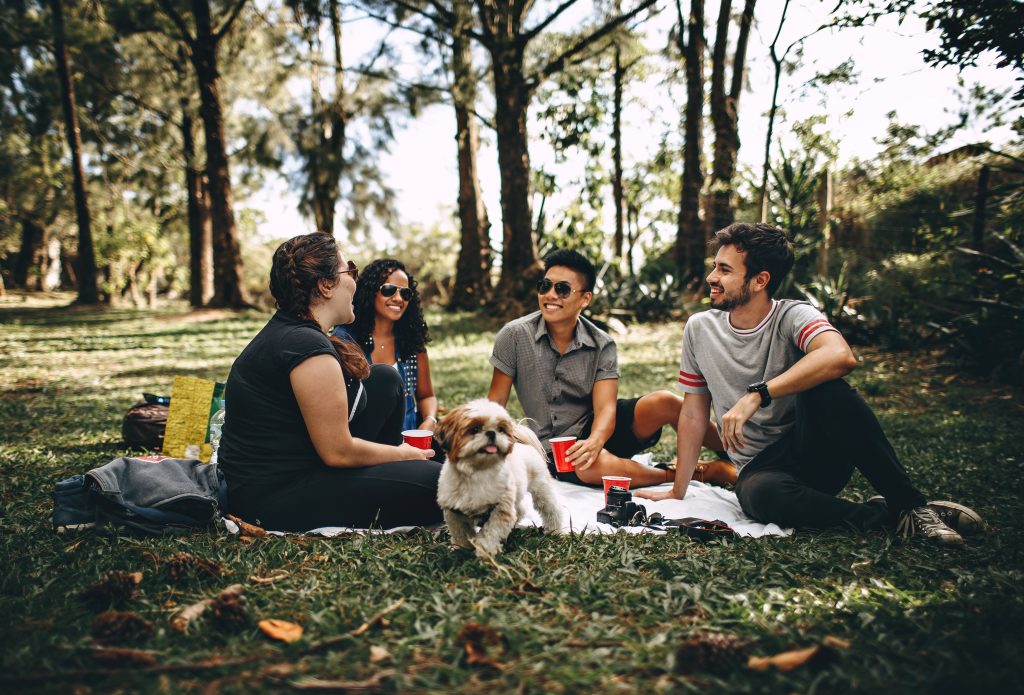
7. Have meaningful conversations.
Beyond surface-level conversations, having deep and meaningful conversations can help you to get to know each other on a much deeper level and establish trust. This is essential in order to create strong and lasting relationships. You might talk about your goals for the future or what struggles you are currently facing. Be honest and open during these conversations. Vulnerability is key to creating meaningful connections and forming strong bonds.
8. Celebrate each other’s successes.
It’s important to celebrate the successes of your friends and be genuinely happy for them. Whether they met the man of their dreams or finally got their dream job, take the time to show your friends that you care and are happy for them. This could be sending a congratulatory message or even throwing them a surprise party. Celebrating each other’s successes is a way of showing that you truly care about each other’s happiness and you want the best for one another in life.
9. Proactively address issues.
Ultimately, it’s important to remember that even though you may not always agree with your friends, strong friendships are built on the ability to work through differences. Be sure to talk through any issues that come up in a respectful and understanding manner. Good communication is essential for resolving any disagreements and ensuring that the friendship is healthy and long-lasting. Misunderstandings happen, but they don’t have to ruin a friendship. Talk things through openly and honestly. And if worst comes to worst, take some time away from each other for perspective before trying again later on down the line.
10. Don’t forget to have fun!
Don’t forget that one of the most important parts of any friendship is to have fun. Good relationships are built on more serious factors like mutual respect and trust, but it’s also about having a good time together. Whether it’s going to a movie or playing a game, take the time to laugh and enjoy each other’s company. And don’t forget to take lots of pictures too, if that’s your thing. They’ll be great memories for you in the future.
Remember, friendships take effort from both parties to stay afloat, so don’t forget to use these guidelines to ensure that your relationships stay strong and healthy.
Final thoughts on friendships
Friendships are one of the most important and valuable relationships we will ever have in our lives. Each is beautiful and unique in its own way. There’s no doubt that healthy, fulfilling friendships are worth nurturing and investing in.
We hope this post has helped you to understand those close to you on a deeper level and that you have a future full of strong, meaningful friendships that will see you through the good times and bad.
If you liked this blog, you might also enjoy our posts about 11 signs of a toxic friend and what to do when a friendship ends.
